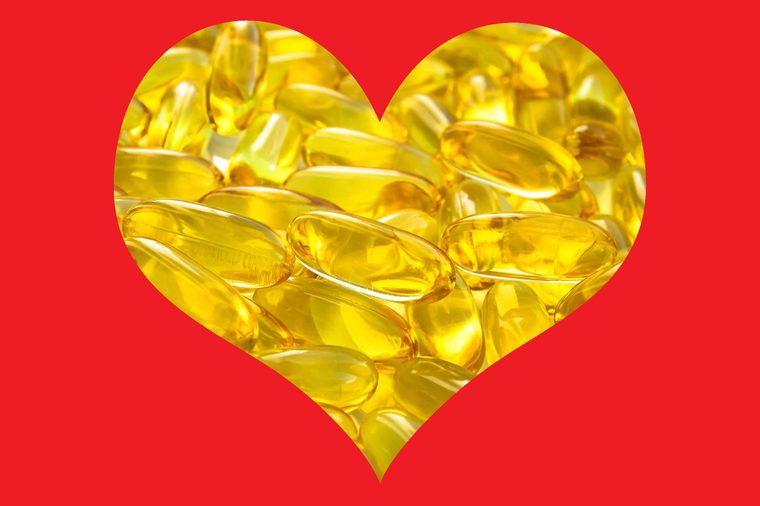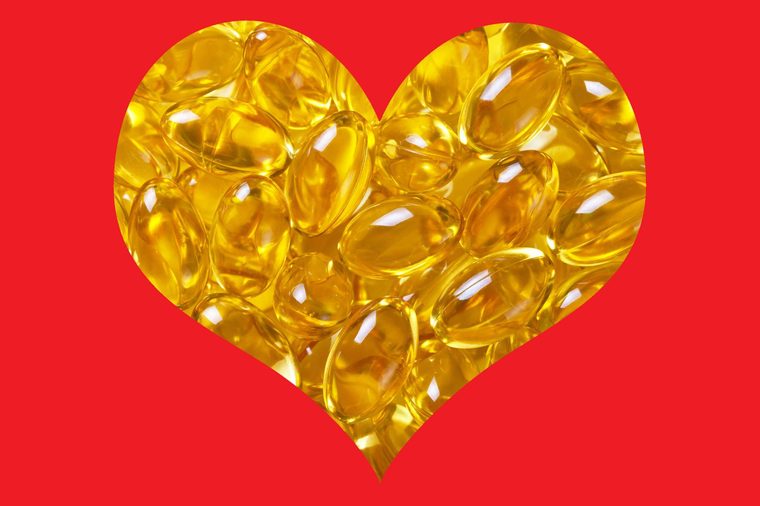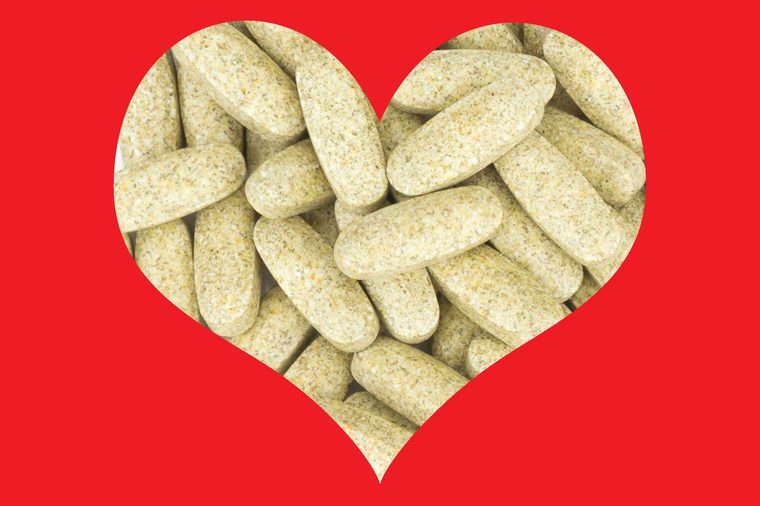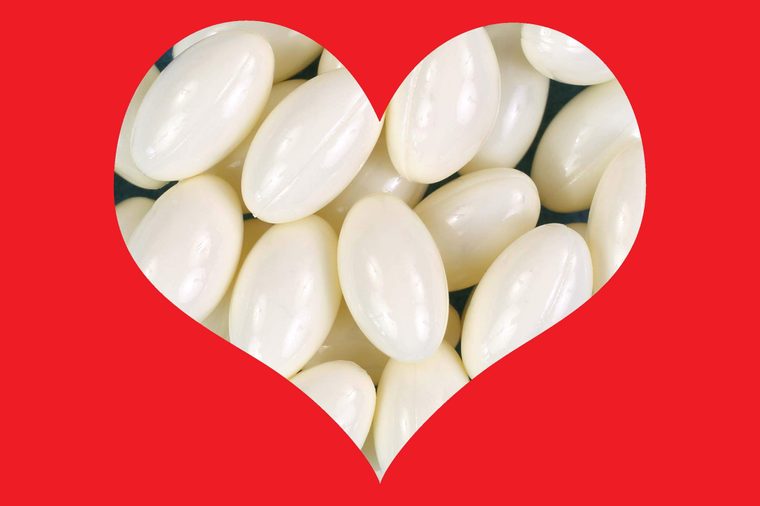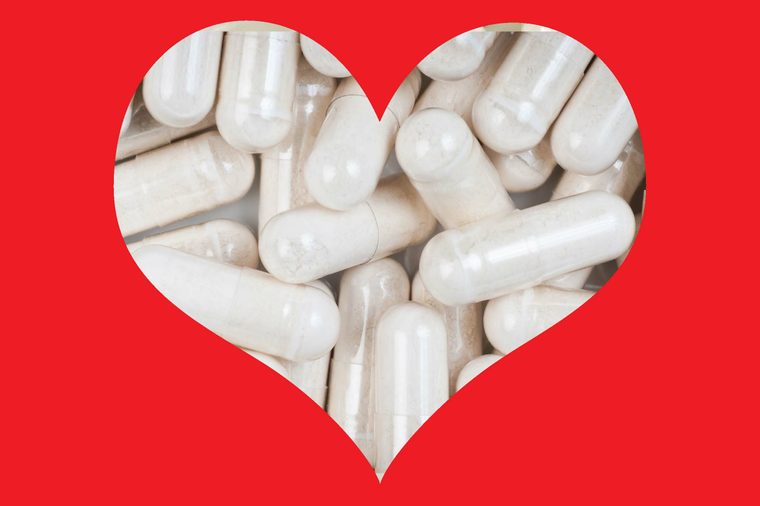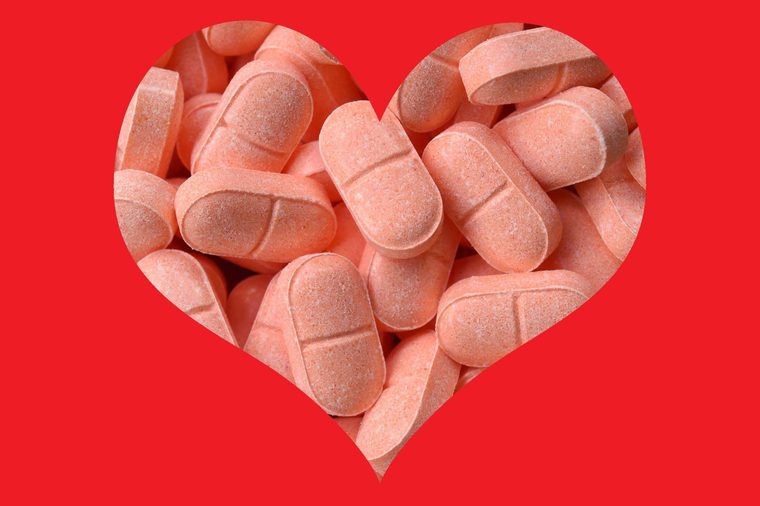Bozena Fulawkas/shutterstock
Vitamin D
$9.99 at Amazon
Vitamin D is also known as the sunshine vitamin because the body produces it when skin is exposed to sunlight. The problem? Low levels of exposure to sunlight during darker months, and the sunscreen we wear to stave off skin cancer, may also prevent vitamin D production—and low levels of D are linked to a host of diseases and conditions including heart disease. “I wear tons of sunblock and a big wide-brimmed hat to protect my skin from cancer, so I take 2,000 international units of vitamin D a day to make sure my levels are where that need to be,” says Dr. Steinbaum. A simple blood test for vitamin D can tell you where you stand and whether you need supplements. This type of vitamin D may be twice as effective as the one you’re taking.
NARUDON ATSAWALARPSAKUN/shutterstock
Garlic
$9.59 at Amazon
Garlic does more than ward off vampires and cause bad breath. The flavorful bulb may lower blood cholesterol levels and blood pressure, according to research published in the Journal of Nutrition. “I started taking Kyolic Aged Garlic Extract a few years back when I received news that I had hypertension,” shares cardiologist Matthew Budoff, MD, a professor of Medicine at David Geffen School of Medicine at UCLA. He takes two garlic pills a day. “I’ve led multiple studies on the supplement that demonstrated coronary plaque regression and blood pressure lowering effects,” he says. “I would recommend it to anyone seeking help with hypertension or early heart disease.” Fatty plaques in the coronary arteries are a sign of heart disease.
Biotin
11.7515% OFF$9.99 at Amazon
New York City cardiologist Neica Goldberg, MD, heard about this B vitamin from a manicurist who suggested she take biotin to strengthen her nails. “I take it when I remember, and my nails are stronger for it,” says Dr. Goldberg, who prefers to get her nutrients from whole foods as opposed to supplements. Taking biotin supplements is one way to make your nails stronger, but there may be a downside when it comes to heart health. The FDA is warning that high doses of biotin in dietary supplements may interfere with hundreds of common lab tests—including the type that emergency room doctors use to diagnose a heart attack.






















